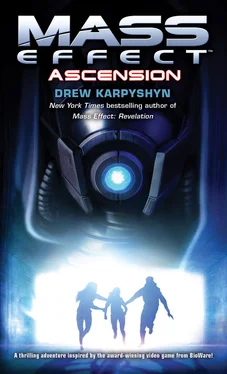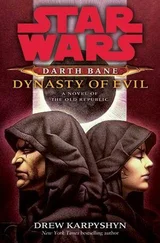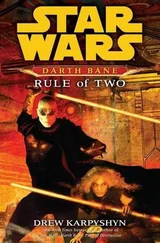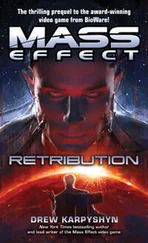The man beneath him struggled and squirmed. There was a wiry strength to his limbs, but he couldn't overcome the advantages of Pel's size and leverage.
"Who are you?" Pel hissed in his ear, using the common trade language. "Who sent you?"
"Golo," came the strained reply.
Pel loosened his choke hold slightly. "Golo sent you?"
"I am Golo." Pel's translator relayed the words in English, but he recognized the speaker's native tongue, and the unmistakable sound of words being spoken from behind a sealed enviro-mask.
With a grunt of disgust, Pel rolled off the quarian and stood up.
"You were supposed to meet me in the bar," he said, not bothering to help his contact up from the ground.
Golo got to his feet gingerly, checking to see if anything was broken. He looked pretty much the same as every other quarian Pel had meet. Slightly shorter and smaller than a human, he was wrapped in several layers of mismatched clothing. The dark scarf that had covered his face had been torn away during their scuffle, revealing the smooth, reflective visor of a helmet that obscured his features.
"My pardon," the quarian answered, switching to English. "I set up the meeting so I could watch you from a safe distance, to make sure you were alone. I've had too many meetings in the past where the person I was supposed to meet was only a lure to draw me out into an ambush."
"Why is that?" Pel wondered aloud, his irritation growing. "You make a habit of double-crossing peo- pie?" He was too pissed off to be impressed by Golo's excellent command of a human dialect.
"My word is my bond," Golo assured him. "But there are many who dislike quarians. They think we are nothing but scavengers and thieves."
That's because you are, Pel thought to himself.
"I was going to follow you back to your apartment," the quarian continued. "And then make face-to-face contact with you there."
"Instead you drew a weapon on me."
"Only for self-defense," Golo objected. "When you ran I knew I had been spotted. I was afraid you would try to kill me."
"I still might," Pel replied, but it was an empty threat. Cerberus needed the quarian alive.
Golo must have sensed he was out of danger, because he turned his back on Pel and retrieved his weapon from the ground.
"We can go to your home and continue our business in private," the quarian offered, securing his pistol somewhere inside the folds of his clothes.
"No," Pel replied. "Somewhere public. I don't want you to know where I'm staying." You'll probably come back later and rob me blind.
Golo shrugged indifferently. "I know a place not far from here."
The quarian took him to a local gambling hall located in the district. A heavily armed krogan standing at the door nodded slightly as they entered. The sign above his head said "Fortune's Den" in many languages, though Pel doubted anyone ever got rich in this place.
"You come here often?" he asked as Golo led him to a booth near the back.
"The owner and I have an arrangement. Nobody will disturb us here."
"Why didn't you just tell me to meet you here in the first place?"
"As I said before, I had to make sure you were alone. Olthar would be very unhappy if I led a group of human mercenaries to his establishment."
The inflection he put on "Olthar" made it sound like a volus name to Pel, but he couldn't be sure. Not that it mattered.
Taking the seat opposite Golo, Pel was surprised to see the place was almost empty. A pair of four-eyed batarians were Throwing dice, a few rotund volus were playing some kind of game that resembled backgammon, and a handful of humans were clustered in the center of the room playing cards under the watchful eye of a shifty-looking salarian dealer. He would have preferred a strip bar — one with human or even asari dancers — but he didn't bother to complain.
"No quasar machines," he noted.
"Too easy to hack, too expensive to repair," the quarian explained.
A waitress — human — came over and wordlessly set a mug on the table in front of him, then scurried away without making eye contact. She might have been attractive once, long ago. As she left, Pel noticed she wore a small electronic locater on her ankle; a device commonly used by slavers to keep track of their property.
His jaw clenched involuntarily. The idea of a human enslaved by alien masters sickened him, but there wasn't anything he could do to help this woman. Not right now anyway.
Soon a day of reckoning will come, he reassured himself. And justice will rain down on all these sick alien bastards.
"My treat," Golo told him, nodding to the glass in front of Pel.
It looked like some alien variant of beer, but he'd learned the hard way to avoid human food prepared in nonhuman establishments. If he was lucky, it would simply be flat and bitter. If he was unlucky, he might spend half the night puking his guts out.
"I'll pass," he said, pushing the glass away. "Why aren't you drinking anything?" he asked after a moment, suddenly suspicious.
"Germs," Golo explained, tapping the face shield of his helmet.
Pel nodded. Since being driven from their home-world by the geth, virtually all quarians now lived on the Migrant Fleet, a flotilla of several thousand ships wandering aimlessly through space. Generations of living in such an isolated, carefully controlled environment had rendered the quarian immune system all but useless against the viruses and bacteria swarming over every inhabited planet in the galaxy. To avoid exposure, they wore form-fitting enviro-suits beneath their ragged clothes and never removed their airtight visored helmets in public.
This had led to rumors that the quarians were in fact cybernetic; a mix of organic and machine beneath their clothes and visors. Pel knew the truth was much less sinister — a quarian simply couldn't survive outside the flotilla without a hermetically sealed suit and mask.
"Let's get down to business," Pel said, turning to the task at hand. "You said you can give us transmission frequencies and communication codes for the Migrant Fleet."
The Migrant Fleet had become of great interest to the Illusive Man and Cerberus, particularly in the wake of the geth attack on the Citadel. Most thought of the quarians as nothing more than a nuisance; nearly seventeen million refugees eking out a hand-to-mouth existence on their fleet of outdated and substandard ships. For three centuries they had traveled from system to system, searching in vain for a suitable uninhabited planet they could use to establish a new homeworld.
The common belief was that the greatest threats the quarians posed to any established colony were the consumption of local resources — such as stripping a system's asteroid belts of precious metals or element zero deposits — and the disruption of communications and starship travel inevitably caused by several thousand unscheduled and unregulated vessels passing through. These inconveniences made the quarians unwelcome in any civilized region of space, but it couldn't be said anyone actually feared them.
The Illusive Man, however, was able to see past their motley garb and jury-rigged ships. Technologically, they were easily the equivalent of any other species. The quarians had created the geth, who had become a scourge upon the galaxy. And they had managed to sustain a civilization numbering nearly seventeen million individuals over hundreds of years without the benefit of any planetary resources. Who knew what else they were capable of?
The Migrant Fleet was also the largest single armada in the known galaxy: tens of thousands of ships, ranging from tiny shuttles to cruisers to the three enormous Liveships — marvels of aerospace and agricultural engineering that provided the primary source of food for the entire flotilla. It was accepted fact that a significant portion of the ships in the fleet were armed, though how many and to what extent was unknown. In fact, very little was known about the quarian flotilla at all. They were a completely insular society; no outsider had ever set foot on one of their vessels since their exodus three centuries ago.
Читать дальше












